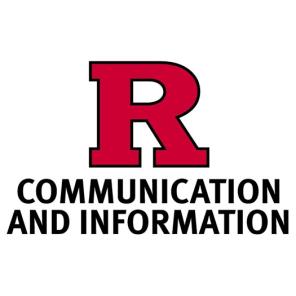February 15, Beyond individuals: Uncovering social structure in teams and organizations using network analysis

Network analysis has been widely employed to examine the social structure of team, groups, and organizations. In this talk, Y. Jasmine Wu will present two studies that apply network analysis in two different settings. The first study investigates the extent to which interpersonal trust in the workplace is influenced by individuals’ perceived proximity to one another. Using Exponential Random Graph Models (ERGMs), she will find that perceived proximity and colocation in the same office on the same days, which facilitate serendipitous encounters, were both positively related to interpersonal trust tie formation at a hybrid workplace. This study provides empirical insights into the distinction between the conscious and subconscious effect of proximity on trust at workplaces in the hope to inform decision-making about remote versus in-person work in organizations. The second study proposes a text-based measure that uses inventors’ prior work to estimate their expertise and the diversity of team members’ expertise. Using this measure on over two million U.S. patent teams, she will show evidence of trends in expertise diversity over time and across team sizes, as well as its relationship with the impact of a team’s innovation output. Both studies contribute to our understanding of how social network analysis can be applied to examine the social structure of teams and organizations and how digital technologies reshape the modern communication channels and collaboration space.
Y. Jasmine Wu
Ph.D. candidate in the Media, Technology, and Society program, working in the Science of Networks in Communities (SONIC) research group at Northwestern University. Her research investigates the dynamics of communication and social relationships in teams and organizations, aiming to leverage social media at workplaces to improve organizational productivity and employee well-being. She applies statistical and computational tools to understand team processes and organizational structure from a social network perspective. Her current project focuses on identifying and understanding communication patterns and relational mechanisms in organizational settings during hybrid work. She won top student paper awards at International Communication Association and National Communication Association. Her publications appear in leading journals in management and network science. She earned her B.S. degree in Information
Network analysis has been widely employed to examine the social structure of team, groups, and organizations. In this talk, Y. Jasmine Wu will present two studies that apply network analysis in two different settings. The first study investigates the extent to which interpersonal trust in the workplace is influenced by individuals’ perceived proximity to one another. Using Exponential Random Graph Models (ERGMs), she will find that perceived proximity and colocation in the same office on the same days, which facilitate serendipitous encounters, were both positively related to interpersonal trust tie formation at a hybrid workplace. This study provides empirical insights into the distinction between the conscious and subconscious effect of proximity on trust at workplaces in the hope to inform decision-making about remote versus in-person work in organizations. The second study proposes a text-based measure that uses inventors’ prior work to estimate their expertise and the diversity of team members’ expertise. Using this measure on over two million U.S. patent teams, she will show evidence of trends in expertise diversity over time and across team sizes, as well as its relationship with the impact of a team’s innovation output. Both studies contribute to our understanding of how social network analysis can be applied to examine the social structure of teams and organizations and how digital technologies reshape the modern communication channels and collaboration space.
Y. Jasmine Wu
Ph.D. candidate in the Media, Technology, and Society program, working in the Science of Networks in Communities (SONIC) research group at Northwestern University. Her research investigates the dynamics of communication and social relationships in teams and organizations, aiming to leverage social media at workplaces to improve organizational productivity and employee well-being. She applies statistical and computational tools to understand team processes and organizational structure from a social network perspective. Her current project focuses on identifying and understanding communication patterns and relational mechanisms in organizational settings during hybrid work. She won top student paper awards at International Communication Association and National Communication Association. Her publications appear in leading journals in management and network science. She earned her B.S. degree in Information
